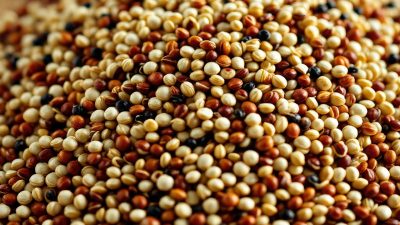Often called the “golden spice,” saffron is not only the world’s most expensive spice, but also one of the most powerful natural remedies available. Used for centuries in traditional medicine and cooking, saffron offers an impressive list of health benefits—from improving mood and memory to supporting heart health and even promoting weight loss.
But is this exotic red thread worth the hype?
In this in-depth article, we’ll explore the top 10 health benefits of saffron, backed by modern research, and how you can safely include it in your daily routine for better health.
Contents
- 1 What Is Saffron?
- 2 Top 10 Scientifically-Backed Health Benefits of Saffron
- 3 1. Boosts Mood and Fights Depression
- 4 2. Rich in Antioxidants That Fight Inflammation
- 5 3. Improves Eye Health and May Slow Macular Degeneration
- 6 4. May Aid in Weight Loss and Appetite Control
- 7 5. Supports Heart Health
- 8 6. May Improve Memory and Brain Function
- 9 7. Reduces PMS Symptoms Naturally
- 10 8. May Have Anti-Cancer Properties
- 11 9. Improves Sexual Function in Men and Women
- 12 10. May Help Manage Blood Sugar Levels
- 13 How to Use Saffron Safely
- 14 Potential Side Effects and Precautions
- 15 Where to Buy Real Saffron
- 16 Final Thoughts: Should You Add Saffron to Your Routine?
- 17 FAQ About Health Benefits of Saffron
What Is Saffron?
Saffron comes from the dried stigmas of the Crocus sativus flower. Each flower produces only three threads of saffron, and it takes about 75,000 blossoms to make one pound, making it extremely labour-intensive to produce.
Beyond its rich colour and distinct aroma, saffron is loaded with active compounds like:
Crocin – a powerful antioxidant responsible for its golden hue
Safranal – contributes to its aroma and mood-enhancing effects
Picrocrocin – gives saffron its bitter taste
Kaempferol – a flavonoid with anti-cancer and heart health benefits
Let’s now explore how these compounds translate into real health advantages.
Top 10 Scientifically-Backed Health Benefits of Saffron
Discover the top 10 scientifically-backed health benefits of saffron—from mood enhancement to eye health, weight loss, and beyond. Learn how to use this golden spice for wellness.
1. Boosts Mood and Fights Depression
One of the most well-documented health benefits of saffron is its natural antidepressant properties.
Science Says:
Numerous clinical studies have shown that saffron can be as effective as prescription antidepressants (like fluoxetine and imipramine) for treating mild to moderate depression—without the side effects.
- A 6-week study published in Phototherapy Research found that 30 mg/day of saffron was as effective as Prozac in reducing depression symptoms.
- It’s also been shown to help reduce symptoms of anxiety, stress, and emotional PMS.
How It Works: Saffron boosts serotonin levels in the brain by inhibiting its reuptake, much like traditional SSRIs.
2. Rich in Antioxidants That Fight Inflammation
Saffron is loaded with potent antioxidants, including crocin, crocetin, safranal, and kaempferol. These help:
- Neutralize free radicals
- Protect cells from oxidative stress
- Reduce chronic inflammation—a root cause of many diseases
Health Impacts:
- May reduce risk of heart disease, Alzheimer’s, and certain cancers
- Supports overall cellular health and aging
3. Improves Eye Health and May Slow Macular Degeneration
One lesser-known benefit of saffron is its effect on eye function—especially in age-related vision decline.
Science Says:
- A study in Journal of Translational Medicine showed that saffron improved visual function in patients with age-related macular degeneration (AMD).
- Crocin and crocetin help protect the retina from oxidative damage and may improve blood flow to the eyes.
Daily supplementation may improve vision clarity and light sensitivity.
4. May Aid in Weight Loss and Appetite Control
Struggling with snacking or emotional eating? Saffron may help you feel fuller and reduce cravings naturally.
Research Shows:
- A study found that women who took saffron extract daily consumed fewer snacks and lost more weight compared to the placebo group.
- Crocin may influence appetite-regulating hormones and reduce emotional eating.
A small dose before meals may promote natural weight control.
5. Supports Heart Health
Saffron’s antioxidant and anti-inflammatory compounds support a healthy cardiovascular system.
Key Benefits:
- Lowers blood pressure thanks to crocetin’s vasodilatory effect.
- Improves cholesterol levels by reducing LDL oxidation.
- Enhances blood flow and arterial function
Regular saffron consumption may reduce the risk of heart attack and stroke, especially when combined with a healthy diet.
6. May Improve Memory and Brain Function
Saffron has shown great promise as a natural nootropic, especially for older adults or those with cognitive decline.
Clinical Evidence:
- Saffron has been studied for its effects on Alzheimer’s disease, with results showing memory and learning improvements after just 16 weeks.
- Comparable to donepezil (Aricept), but without the gastrointestinal side effects.
Antioxidants in saffron protect brain cells and improve neurotransmitter function, making it beneficial for focus, memory, and cognition.
7. Reduces PMS Symptoms Naturally
For many women, premenstrual syndrome (PMS) brings physical pain, irritability, mood swings, and cravings. Saffron can help ease all of the above.
Clinical Study:
A double-blind study found that women who took 30 mg of saffron daily had significant reduction in PMS symptoms, including:
- Cramping
- Mood swings
- Breast tenderness
- Appetite changes
Taking saffron for 2 menstrual cycles reduced both emotional and physical PMS symptoms.
8. May Have Anti-Cancer Properties
Early research shows that crocin and safranal in saffron may help fight cancer cells while leaving healthy cells untouched.
Possible Effects:
- Inhibits tumour growth in lab studies.
- Enhances apoptosis (natural cell death) in cancer cells.
- Reduces inflammation and oxidative stress, which fuel cancer development.
Note: Saffron is not a substitute for cancer treatment, but may complement preventive health strategies.
9. Improves Sexual Function in Men and Women
Saffron is considered a natural aphrodisiac in many cultures—and modern research backs this up.
Research Shows:
- Improves erectile function and libido in men.
- Enhances sexual arousal, lubrication, and satisfaction in women.
- May reduce sexual dysfunction linked to antidepressants (SSRIs)
Just 30 mg daily for 4 weeks showed measurable improvements in sexual health for both genders.
10. May Help Manage Blood Sugar Levels
Saffron shows promise in helping regulate blood glucose and improving insulin sensitivity.
Animal Studies Show:
- Improved insulin function
- Lowered fasting blood sugar
- Reduced oxidative stress in pancreatic cells
While human studies are still limited, saffron may be a helpful supplement for prediabetics or those with type 2 diabetes, especially when paired with diet and exercise.
How to Use Saffron Safely
Dosage: Most studies use 30 mg per day, which equals about 15–20 saffron threads or one small pinch.
How to Take It:
- Steep threads in warm water, tea, or milk
- Add to rice, soups, stews, or desserts
- Take as a capsule (look for pure saffron extract)
For best absorption, let saffron soak in warm liquid for 10–15 minutes before use.
Potential Side Effects and Precautions
Saffron is safe in culinary and supplement doses, but excessive intake may cause side effects.
Avoid Exceeding:
- Over 1.5g/day (very high amounts) may cause nausea, dizziness, or uterine contractions.
- Pregnant women should stick to food-level amounts only.
Always consult your doctor if you’re on medication or have medical conditions.
Where to Buy Real Saffron
Due to its high value, fake or adulterated saffron is common. Buy from trusted brands or sources that offer:
- Deep red threads (not yellow or pale)
- Slightly bitter aroma
- No added colorants or oils
Popular brands include:
- Mehr Saffron
- Zaran Saffron
- The Gathering of Saffron
Final Thoughts: Should You Add Saffron to Your Routine?
Absolutely.
Saffron is more than just a luxury spice—it’s a powerful natural remedy for both physical and emotional wellness. Backed by science, saffron health benefits include:
- Better mood and memory
- Reduced inflammation and cravings
- Enhanced eye, heart, and hormonal health
A small daily dose—just a pinch—can make a big difference.
Whether you stir it into tea, take it in capsule form, or cook with it, this golden thread could be your new go-to for natural healing and vitality.
FAQ About Health Benefits of Saffron
What is saffron and where does it come from?
Saffron is a vibrant red spice derived from the flower Crocus sativus. Known as the world’s most expensive spice, it originates from Southwest Asia and is harvested by hand from the delicate stigma of the saffron crocus flower.
What are the main Health Benefits of Saffron?
Saffron may help improve mood, reduce symptoms of depression, support eye health, enhance memory, and act as a powerful antioxidant. It also has anti-inflammatory properties and may support heart and digestive health.
Is saffron good for mental health?
Yes, studies show that saffron can naturally boost serotonin levels, helping reduce symptoms of depression, anxiety, and mood swings—earning it the nickname “sunshine spice.”
Can saffron help with weight loss?
Saffron may reduce appetite and help prevent snacking, which can support weight loss efforts. Some research suggests saffron supplements may help curb emotional eating.
How much saffron should you consume daily?
A safe and effective dose is around 30 mg per day. Excessive intake can lead to side effects, so it’s best to use saffron in moderation or as directed by a healthcare provider.
Is saffron safe during pregnancy?
In small culinary amounts, saffron is generally safe. However, high doses may pose a risk during pregnancy, so it’s essential to consult a doctor before taking saffron supplements.
How can I use saffron in my diet?
Saffron can be added to rice, stews, soups, herbal teas, and desserts. Steeping a few threads in warm water or milk enhances both color and flavor in recipes.


